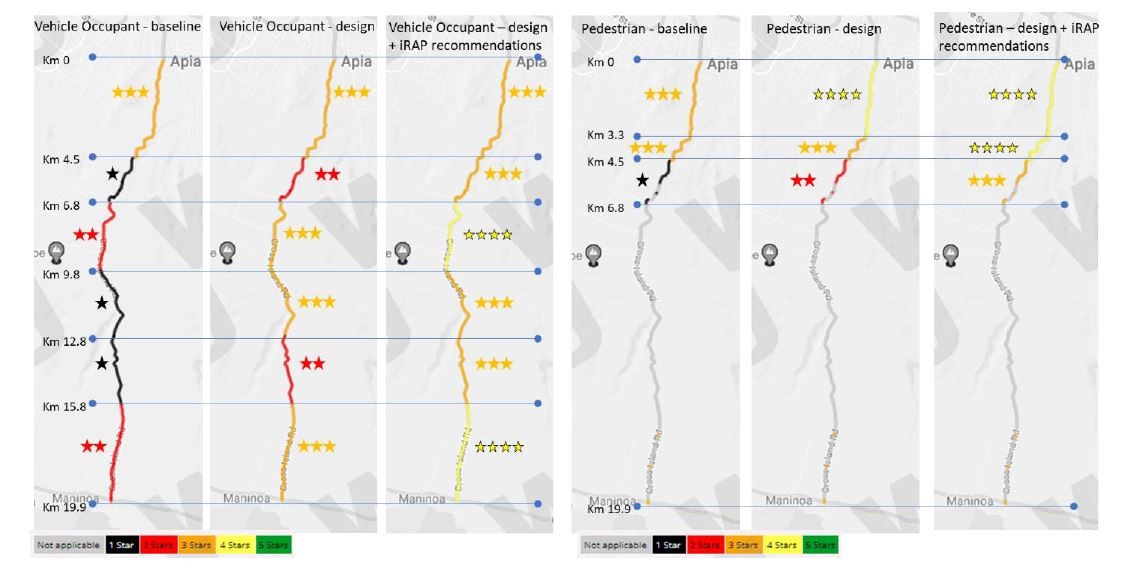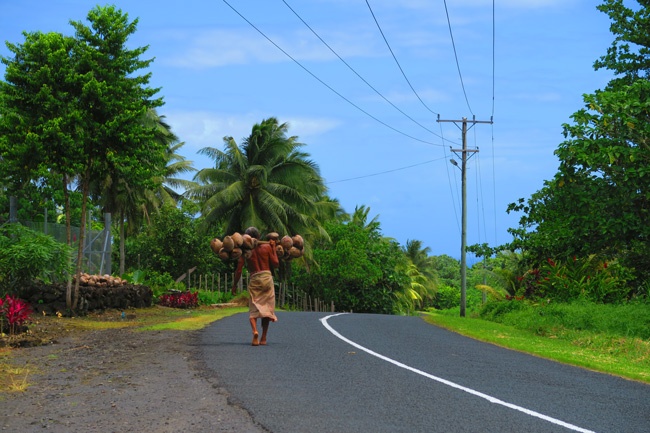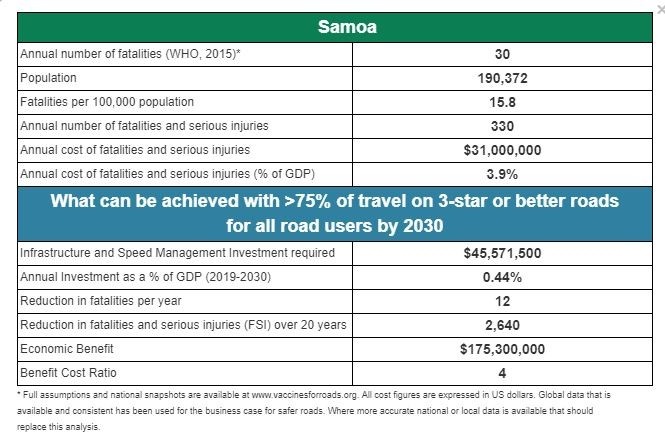Samoa’s land transport system depends upon several key arterial roads that serve the two main islands, Upolu where the capital Apia is located, and Savai’i. Upolu is served by three cross-island roads strategically located in the east, west and centre. The Central Cross Island Road (CCIR) is the key arterial connecting the West Coast Road in Apia with the South Coast Road in Siumu and was selected by the Government of Samoa for upgrade under ADB assistance.
Designs were prepared for the LTA for 20km of the existing CCIR by SMEC, in association with MMSM Ltd, and assessed by iRAP. Recommendations were made on how to improve the proposed designs to achieve a 3-star or better safety rating. The proposed design plus iRAP recommendations for countermeasures observed a significant increase in a 3-star or better road network for vehicle occupants and pedestrians.
CCIR provides access to eight villages and to the capital, Apia. The existing 2-lane narrow carriageway
(4-5m wide) carries up to 7,116 vehicles per day along the first 4.2km and 1,347 vehicles per day for the remaining road section.
A comparison of the baseline and design Star Rating results shows that the design greatly increases the
3-star road length for vehicle occupants from 23% to 73%. The road length achieving a 3-star or better rating for pedestrians (where present) remains the same at 77%, however the 1-star section has been successfully eliminated.
Star Rating maps comparing baseline, design and iRAP recommendations

The iRAP Safer Road Investment Plan prepared for the proposed road design lists cost-effective countermeasures that have been identified to further reduce risk. These include the removal of roadside hazards, improved delineation at horizontal curves and improved pedestrian facilities at identified locations. The plan suggests that the highest risk (1- and 2-star) roads can be cost-effectively eliminated, bringing the new road to 3-stars or better for the entire length of the corridor for vehicle occupants and pedestrians (where present).
The designs are currently being amended to include some of the countermeasures identified in the final report.
According to iRAP’s Big Data tool , the number of estimated fatalities in Samoa per year is 30 (WHO 2015). This project supports the Samoan Government’s work towards achieving the UN Target of > 75% of travel on 3 star or better roads by 2030 and to reduce the number of deaths and serious injuries on Samoan roads. As CCIR provides access to the main capital and many villages, economic and social benefits will follow implementation. Achieving >75% of travel on 3-star or better roads for all road users in Samoa by 2030 stands to save 2,640 lives and serious injuries each year with an economic benefit of USD$1.75 billion.
Download the printable Central Cross Island Road, Samoa Case Study here.
Missed iRAP’s 100 Countries Celebration video? See it here.
Article image credit: https://xdaysiny.com/



















